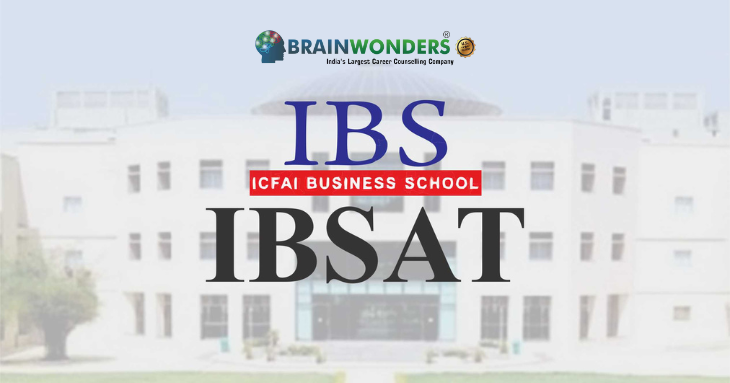

Take Brainwonders Career Test and make the right decisions for your college and course ahead
Let your unique personality, strengths, and traits guide to make the best decdision of your life!
Blog
05 May,2023 | By Brainwonders

The abbreviation "M.Sc" stands for "Master of Science." A master's degree in science, also known as an M.Sc., is a postgraduate degree that focuses on the study of scientific and technological topics. The content of the course is broken up into a variety of sub-disciplines, including physics, chemistry, biology, and a great deal of other topics. Students who pursue a Master's in Science are provided with a framework appropriate for professionals and are trained in a manner that is both theoretical and practical. This prepares them to advance their careers.
This course is designed to provide students with an advanced theoretical and practical understanding of science. It is up to the students who have graduated to decide which path they want to follow going forward with their lives. A Master of Science degree not only provides individuals with excellent employment opportunities but also makes the degree accessible through both traditional classroom settings and independent study.
You can earn your Master of Science degree through one of these three different types of educational approaches:
To be eligible to submit an application for admission to a master's degree programme in science, one must first satisfy the prerequisites established by the educational institutions. Let us take a look at the eligibility requirements for Master of Science programmes, which are as follows:
A Master of Science degree is widely regarded as being among the most prestigious and advantageous degrees. This programme opens the door to employment opportunities in the field of information technology and has a global reach. The curriculum is designed to cover outstanding features of science in a variety of domains, and it prepares students to have minds that are capable of original thought.
A master's degree is, in every sense of the word, a higher level of education, and graduates typically have a more developed worldview. Students need to keep in mind that any concentration they choose within the M. Sc. programme will provide them with excellent opportunities for their future jobs. As a result, enrolling in a Master of Science programme emerges as one of the most promising options.
The value of your degree will be enhanced by the experiences you gained on the job. Students who do not have any previous job experience will not be at a disadvantage in terms of their eligibility to apply for the degree because they will not be required to have any. However, students who graduate and already have some post-college work experience will receive some additional points for their qualifications.
Therefore, previous work experience is not required in order to be considered for admission to the Master of Science programme in India. M. Sc. applications will be open to any and all students who have met the prerequisites and eligibility conditions.
Applicants to prestigious universities for a Master of Science degree are need to pass specific entrance examinations. AIIMS PG, the Joint Admission Test offered by the Indian Institute of Technology (IIT JAM), an entrance exam offered by the IGNOU, and other competitive admission exams are some instances.
The majority of colleges and universities demand that applicants achieve a minimum score on one of these admissions tests in order to be considered. These are some of the most well-known entrance tests, and they are prerequisites for getting into M.Sc. programmes.
IIT JAM
IIT JAM is an abbreviation for the Joint Admission Test for Master of Science degrees. IIT JAM is one of the most competitive entrance examinations in India for students seeking admission to Master of Science degree programmes. Candidates vying for spots in a variety of Master of Science degree programmes offered by IITs and IISC. In addition to the Indian Institutes of Technology (IITs), a large number of the National Institutes of Technology (NITs) and Centrally Funded Technical Institutes (CFTIs) use the IIT Joint Admission Test to select students for admission. On a yearly basis, this examination is administered on behalf of the MHRD by the IITs on the basis of a rotational schedule.
The National Entrance Screening Test, or NEST
The National Entrance Screening Test, also known as NEST, is a test that is given on a national scale and is administered jointly by the National Institute of Science Education and Research (NISER), Bhubaneswar and Mumbai University - Department of Atomic Energy Centre for Excellence in Basic Sciences (UM-DAE CEBS), Mumbai. This test is used to determine who will be admitted into integrated Master of Science degree programmes at the institutes. Those applicants who are successful in passing the examination will be offered admission into Integrated Master of Science degree programmes in the fields of Biology, Chemistry, Mathematics, and Physics.
The Delhi University Entrance Test, also known as DUET, is an examination held at the national level. Candidates who wish to enrol in Master of Science programmes at Delhi University are eligible to take the test. The admissions test is given virtually once a year, on a yearly basis, online. . Sc. Anthropology, M.Sc. Forensic Science, M.Sc. Botany, M.Sc./M.Sc.- PhD Combined Degree course - Biomedical Sciences, M.Sc. Environmental Studies, M.Sc. Biochemistry, M.Sc. Electronics, M.Sc. Genetics, M.Sc. Informatics, and M.Sc. Microbiology are just some of the courses that are available in Delhi University through this entrance
Two to three lakhs is the average annual wage for someone who has recently graduated with a Master of Science degree. Having said that, the remuneration packages get enhanced as one has more experience in the industry. For those with a Master of Science degree or beyond, the income range can reach as high as seven to nine lakhs, or even higher.
The wage structures may differ for individuals in accordance with the stream with which they are affiliated as well as the job profile that they carry. Additionally, when it comes to determining remuneration packages, years of previous work experience are a significant factor. The higher the level of experience, the higher the base income will be.
The Master of Science degree can be completed with a number of different concentrations, so students have the opportunity to investigate a wide range of topics. The following are some of the areas of concentration available to M. Sc. candidates:
Let's have a look at some of the M. Sc. specialisations that are recognised as being among the very finest in their respective fields. These include the following:
Students should bear in mind the eligibility standards that top colleges ask for in order to increase their chances of being accepted into one of those universities to pursue a Master of Science degree in any of the available specialisations. It is essential to perform in-depth study on the field of expertise that one is interested in pursuing and then compile a list of the top educational institutions in that field.
After compiling a list of the most prestigious educational institutions, potential students should familiarise themselves thoroughly with the qualifying requirements and then act in accordance with those standards. Additionally, the students should make it a priority to maintain grades that are significantly higher than what is required by the university. They will become more noticeable to the universities as a result of this.
There are a number of colleges that provide Master of Science degrees; nevertheless, it is well recognised that certain universities have a superior reputation for a particular field of study. In a similar vein, the following are some of the most prestigious colleges in the world that are known for having the best Master of Science programmes:
Applicants for a Master of Science degree must be at least 30 years old. It makes no difference what age you are, particularly if you are observing it from a distance. A Master of Science degree is always a viable option for candidates to consider. M.S. degree programmes at higher levels are open to working people who want to further their education.
The answer is that age does not have any bearing on the result. To earn a Master of Science degree, one needs simply to demonstrate that they have a significant motivation to do so, regardless of their age.
The price of a Master of Science degree will differ depending on the individual's area of concentration and the institution to which they apply. An Master of Science degree is approximately 2.8 lakh rupees more expensive than a Bachelor of Science degree. The pricing for the various specialties is determined by a variety of different approaches. The decision lies solely in the hands of the individual.
On the other hand, it's possible that the tuition for online Master of Science programmes is lower than that of traditional Master of Science programmes. People who were unable to attend traditional or on-campus classes due to financial constraints were targeted as potential participants in the distance learning programmes.
Postgraduates with a Master of Science degree have a lot of opportunities, and the pay vary depending on the field or industry they work in. Students have access to a significant number of options in both the commercial and public sectors of the economy. The following table presents, broken down by job profile, the annual compensation that is typical for those with a Master of Science degree.
| Job Type | Average Salary in Rs (Freshers to Experienced) |
| Research Assistant | Rs 6 lakhs (approx) |
| Professor | Rs. 8 lakhs (approx) |
| Laboratory Technician | Rs. 5 lakhs (approx) |
| Food and Drug Inspector | Rs.10 lakhs (approx) |
| Manager/Executive (Senior/Assistant/Junior) | Rs. 15 lakhs (approx) |
| Biochemist | Rs. 7.50 lakhs (approx) |
| Junior Research Fellow | Rs.5 lakhs (approx) |
| Chemical Analyst | Rs. 9.90 lakhs (approx) |
| Mathematician | Rs. 7 lakhs (approx) |
| Scientist | 6-20 Lakhs (approx) |
Top Recruiters
In the past few years, online and distance learning have developed into quite solid possibilities for educational pursuits in spite of the critical times we are living in due to the pandemic. Students who are juggling multiple responsibilities at once and just do not have the spare time to attend traditional lectures might benefit tremendously from the availability of distance learning options. Both online and distance learning have emerged as viable solutions to the challenges faced by students who are also employed. On the other hand, a Master of Science degree earned online, which is more technologically advanced than a Master of Science degree earned through distance learning, will be a little bit different.
In contrast, if you enrol in a distance master of science programme, you won't have access to any online learning opportunities at all. There are a very limited number of universities that provide distance learning programmes that include online class options. In addition, online M.S. programmes offer online tests, whereas distance M.S. programmes do not. This is an advantage of the online M.S. programmes.
Earning a degree at a distance or online is typically very cost-effective. The cost of the traditional Master of Science degree is significantly more than that of the online Master of Science degree. One of the reasons that distance learning programmes are given some consideration is that the programmes are designed in such a way that they take into account the possibility that a student may have financial difficulties. Therefore, the answer is yes; the M. Sc. degree that is completed online or through distance learning will be far more reasonable and cost-effective.
Learning at a distance and completing coursework online are both beneficial in their own right. The Master of Science degree that is completed online will be available at a reduced cost, making it much more accessible to a large number of students. In addition, when it is finished from a well-known and acknowledged university, a Master of Science degree earned through remote learning will be accorded the same level of recognition as a Master of Science degree earned through regular study.
When completed from an established university that is recognised by the UGC, degrees earned through remote learning are frequently evaluated on an equal footing. Therefore, a student does not need to move out of his apartment for classes because he or she receives everything at his or her doorstep; there is no way that this cannot be an advantage.
Students who have finished their undergraduate studies in Science often find that pursuing a Master of Science degree is one of the best options available to them. This is due to the rewarding career opportunities that are available after the completion of the course as well as the diverse scope of the degree. Those who have earned a Master of Science degree are considered experts in their profession, and depending on the area in which they chose to specialise their education, they have a variety of career options available to them. M.Sc. graduates have a lot of opportunities in the education, defence, automotive, and aerospace industries, as well as the public sector, healthcare, materials, computers, technology, energy, and information technology domains.
These fields all require M.Sc. graduates for their operations. The following is a list of the most common professional fields open to someone with a Master of Science degree:
Graduates with a Master of Science degree might find rewarding careers in a wide variety of industries, depending on the areas in which they chose to specialise. After finishing their Master of Science degrees, students have the option of entering a variety of different fields and specialisations. The following is a list of the top job profiles for postgraduates with a Master of Science degree:
A Master of Science (M. Sc.) degree is extremely prestigious and calls for exceptional knowledge and expertise in a variety of fields. As a result of its extensive involvement in the field of science and technology, the programme proves to be an extremely fascinating one
Pursuing higher education in the relevant discipline is the initial step toward a career. You can get the training you need to do what you want to do at some of the best educational institutions in the world.
Take Brainwonders Career Test and make the right decisions for your college and course ahead



,_Syllabus,_Pattern,_Old_Question_Papers.png)

